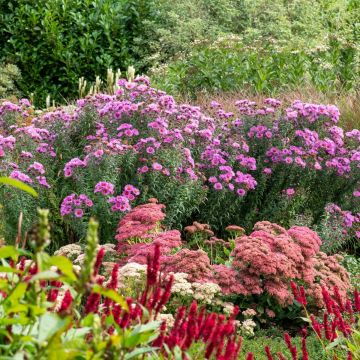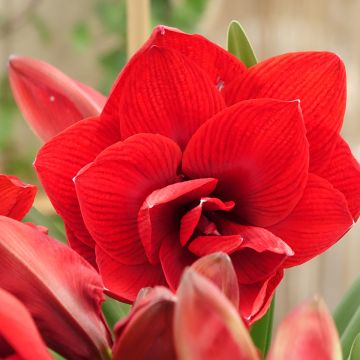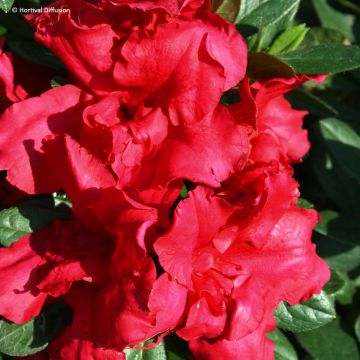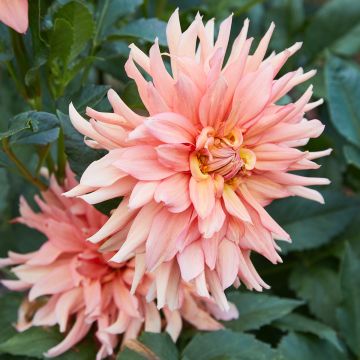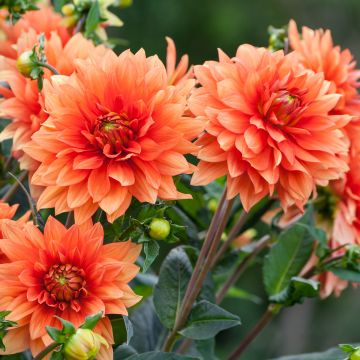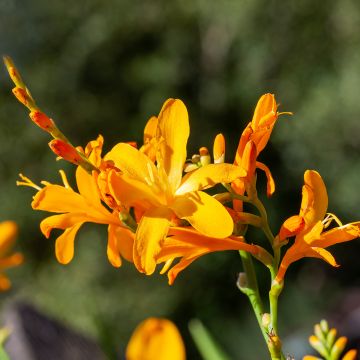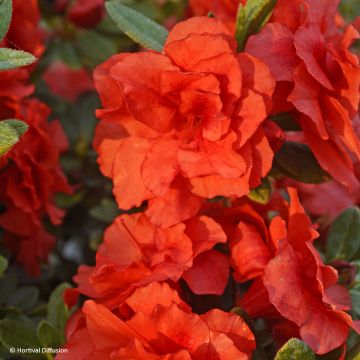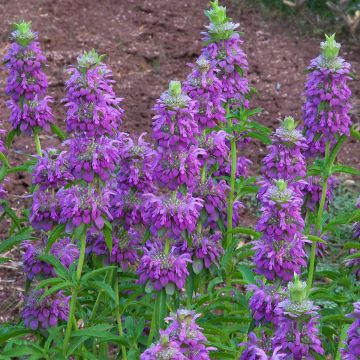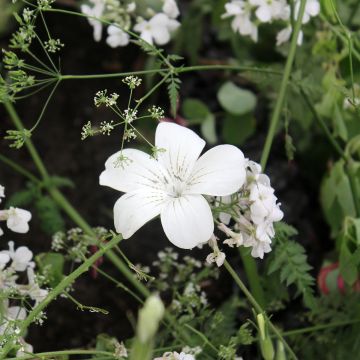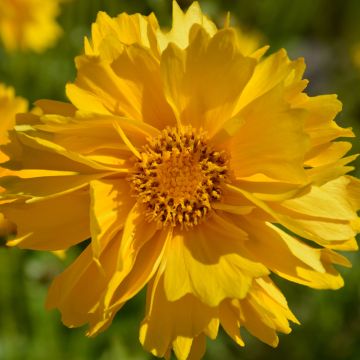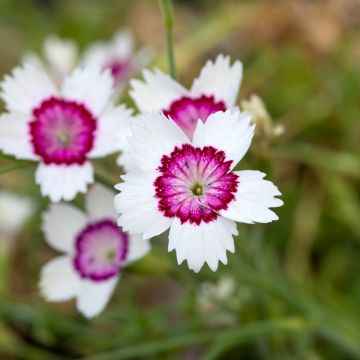

Petunia Double Cascade Blue F1 Hybrid
Petunia grandiflora Double Cascade Blue
Petunia x hybrida grandiflora Double Cascade Blue
Grandiflora Petunia
Special offer!
Receive a €20 voucher for any order over €90 (excluding delivery costs, credit notes, and plastic-free options)!
1- Add your favorite plants to your cart.
2- Once you have reached €90, confirm your order (you can even choose the delivery date!).
3- As soon as your order is shipped, you will receive an email containing your voucher code, valid for 3 months (90 days).
Your voucher is unique and can only be used once, for any order with a minimum value of €20, excluding delivery costs.
Can be combined with other current offers, non-divisible and non-refundable.
Why not try an alternative variety in stock?
View all →This plant carries a 6 months recovery warranty
More information
We guarantee the quality of our plants for a full growing cycle, and will replace at our expense any plant that fails to recover under normal climatic and planting conditions.
Would this plant suit my garden?
Set up your Plantfit profile →
Description
The 'Double Cascade Blue' Grandiflora Petunia is a remarkable variety of Petunia. Its long trailing stems are covered in a cascade of large double flowers with a deep midnight blue colour from June to the first frost. It resists rain remarkably well—ideal for containers, hanging baskets, and borders or ground cover.
It is a highly appreciated plant of excellent ornamental value, which owes its success to its generosity and the length of its flowering period.
The 'Double Cascade Blue' Grandiflora Petunia has a trailing habit, reaching a height of 30 cm (12in), and produces long and floriferous stems. You can plant it in the garden, along borders or in the middle of a flower bed, or in pots, containers or hanging baskets where it will look stunning on its own or accompanied by Angelonia, Nemesia, Dichondra or even with Holcus mollis for a modern and contrasting effect.
Native to South America and belonging to the Solanaceae family (like Ornamental Tobacco but also... the potato!), the petunia, or Petunia x hybrida, is an annual herbaceous plant. It bears charming bell-shaped flowers on elongating stems, with the size and colour varying depending on the variety. Its leaves are slightly pubescent, with smooth edges and dark green. It flowers from June onwards and lasts until the first frost.
The petunia thrives in sunny and sheltered positions. It should be planted in rich, light and well-drained soil or substrate. Its cultivation is easy, but it requires a lot of water.
To encourage and support its long flowering period, it is advisable to regularly remove faded flowers and provide a potassium-rich fertiliser, especially in pots and containers, to promote the appearance of new flowers.
Attention: seeds are reserved for very experienced gardeners who are used to sowing very fine seeds. These seeds are as fine as dust, barely visible to the naked eye.
Report an error about the product description
Flowering
Foliage
Plant habit
Botanical data
Petunia
x hybrida grandiflora
Double Cascade Blue
Solanaceae
Grandiflora Petunia
Cultivar or hybrid
Other Thompson and Morgan seeds
View all →Planting and care
Sow petunias on a good sowing compost surface from February to April and press gently. Cover the seeds lightly with a thin layer of vermiculite or sieved compost. Place the bowl in a propagator (or enclose it in a polythene bag) or above a radiator at a temperature of 21 to 25°C. Keep the soil moist but not soggy. Light facilitates germination, which generally takes 10 to 21 days.
Once the young petunia plants are large enough to handle, transplant them. Gradually acclimatise the plants to cooler conditions until they are strong enough to be moved outdoors once all risk of frost has passed. Transplant them into well-drained soil at a distance of 30 cm or grow them in pots or window boxes.
Sowing period
Intended location
This item has not been reviewed yet - be the first to leave a review about it.
Haven't found what you were looking for?
Hardiness is the lowest winter temperature a plant can endure without suffering serious damage or even dying. However, hardiness is affected by location (a sheltered area, such as a patio), protection (winter cover) and soil type (hardiness is improved by well-drained soil).

Photo Sharing Terms & Conditions
In order to encourage gardeners to interact and share their experiences, Promesse de fleurs offers various media enabling content to be uploaded onto its Site - in particular via the ‘Photo sharing’ module.
The User agrees to refrain from:
- Posting any content that is illegal, prejudicial, insulting, racist, inciteful to hatred, revisionist, contrary to public decency, that infringes on privacy or on the privacy rights of third parties, in particular the publicity rights of persons and goods, intellectual property rights, or the right to privacy.
- Submitting content on behalf of a third party;
- Impersonate the identity of a third party and/or publish any personal information about a third party;
In general, the User undertakes to refrain from any unethical behaviour.
All Content (in particular text, comments, files, images, photos, videos, creative works, etc.), which may be subject to property or intellectual property rights, image or other private rights, shall remain the property of the User, subject to the limited rights granted by the terms of the licence granted by Promesse de fleurs as stated below. Users are at liberty to publish or not to publish such Content on the Site, notably via the ‘Photo Sharing’ facility, and accept that this Content shall be made public and freely accessible, notably on the Internet.
Users further acknowledge, undertake to have ,and guarantee that they hold all necessary rights and permissions to publish such material on the Site, in particular with regard to the legislation in force pertaining to any privacy, property, intellectual property, image, or contractual rights, or rights of any other nature. By publishing such Content on the Site, Users acknowledge accepting full liability as publishers of the Content within the meaning of the law, and grant Promesse de fleurs, free of charge, an inclusive, worldwide licence for the said Content for the entire duration of its publication, including all reproduction, representation, up/downloading, displaying, performing, transmission, and storage rights.
Users also grant permission for their name to be linked to the Content and accept that this link may not always be made available.
By engaging in posting material, Users consent to their Content becoming automatically accessible on the Internet, in particular on other sites and/or blogs and/or web pages of the Promesse de fleurs site, including in particular social pages and the Promesse de fleurs catalogue.
Users may secure the removal of entrusted content free of charge by issuing a simple request via our contact form.
The flowering period indicated on our website applies to countries and regions located in USDA zone 8 (France, the United Kingdom, Ireland, the Netherlands, etc.)
It will vary according to where you live:
- In zones 9 to 10 (Italy, Spain, Greece, etc.), flowering will occur about 2 to 4 weeks earlier.
- In zones 6 to 7 (Germany, Poland, Slovenia, and lower mountainous regions), flowering will be delayed by 2 to 3 weeks.
- In zone 5 (Central Europe, Scandinavia), blooming will be delayed by 3 to 5 weeks.
In temperate climates, pruning of spring-flowering shrubs (forsythia, spireas, etc.) should be done just after flowering.
Pruning of summer-flowering shrubs (Indian Lilac, Perovskia, etc.) can be done in winter or spring.
In cold regions as well as with frost-sensitive plants, avoid pruning too early when severe frosts may still occur.
The planting period indicated on our website applies to countries and regions located in USDA zone 8 (France, United Kingdom, Ireland, Netherlands).
It will vary according to where you live:
- In Mediterranean zones (Marseille, Madrid, Milan, etc.), autumn and winter are the best planting periods.
- In continental zones (Strasbourg, Munich, Vienna, etc.), delay planting by 2 to 3 weeks in spring and bring it forward by 2 to 4 weeks in autumn.
- In mountainous regions (the Alps, Pyrenees, Carpathians, etc.), it is best to plant in late spring (May-June) or late summer (August-September).
The harvesting period indicated on our website applies to countries and regions in USDA zone 8 (France, England, Ireland, the Netherlands).
In colder areas (Scandinavia, Poland, Austria...) fruit and vegetable harvests are likely to be delayed by 3-4 weeks.
In warmer areas (Italy, Spain, Greece, etc.), harvesting will probably take place earlier, depending on weather conditions.
The sowing periods indicated on our website apply to countries and regions within USDA Zone 8 (France, UK, Ireland, Netherlands).
In colder areas (Scandinavia, Poland, Austria...), delay any outdoor sowing by 3-4 weeks, or sow under glass.
In warmer climes (Italy, Spain, Greece, etc.), bring outdoor sowing forward by a few weeks.






























